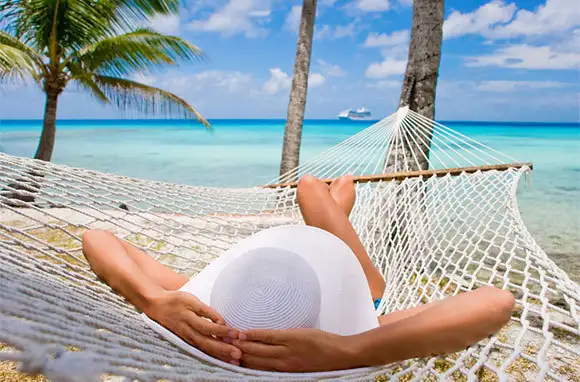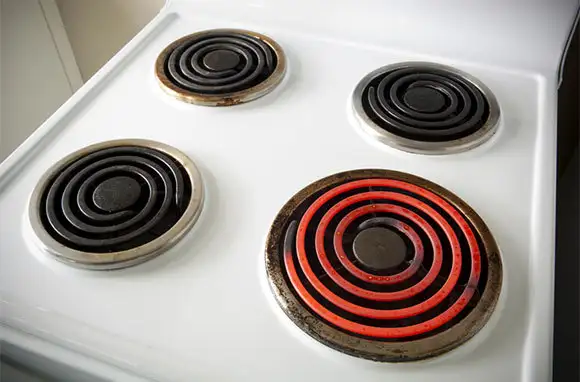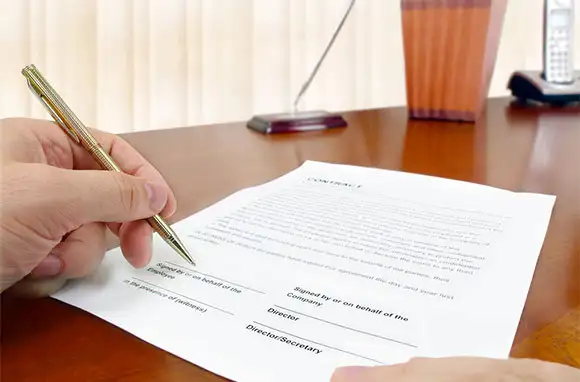
My introduction to vacation rentals came shortly after my first child was born, when my wife and I somehow got it in our heads that it would be a good idea to take a vacation not only with my wife’s parents but also with her brother and his wife and my wife’s grandparents. I pictured the nine of us crowded together in a small cabin in New Hampshire with no room to move around and nothing to entertain us but the misadventures of my in-laws’ corgi, cat, and cockatoo. (Yes, they all joined us, too.)
It turns out my fears were misplaced. We had plenty of space, plenty to do—the rental was on a lake with its own private dock—and plenty of money left over after booking to spend on food and activities. As introductions go, my first brush with the art of renting a vacation property couldn’t have gone much better. But the truth is I got lucky that first time. I didn’t know what I didn’t know about vacation rentals.
We’ve rented a new place every summer since then, sometimes here in the U.S. and sometimes overseas, and each year I’ve added a few new rules to my list of what to look for, what to ask, when to book, and when to walk away from a rental agreement. So whether you’re new to vacation rentals or need a refresher course on how to go about picking the right one for your next trip, follow these eight steps and you’ll be relaxing in the perfect property in no time.
Image Gallery

Have a Booking Strategy
There are two schools of thought when it comes to booking a vacation rental. And, much like when to book airfare, no one seems to agree on the best approach. But there are some accepted rules of thumb that I've found to be true.
First, for the best selection of properties, especially during your destination's busy season, I recommend booking at least 60 days in advance. For some places, you'll need to book even further out. Second, for the best prices, book at the very last minute. I know that sounds like contradictory advice, but here's how it works: If you want to have your pick of properties, it's all about reserving your rental early. If you're desperate for a last-minute getaway, and you're less picky about the property, then you can save on average about 10 percent off the listed price by booking late, according to some estimates.
Personally, I prefer the first approach: Book early. Maybe it's because I'm always thinking about my next trip before my bags are even unpacked from my previous getaway, but I like being able to pick from the creme de la creme of rental properties (and select the exact dates I want) whenever I browse.

Have a Booking Strategy
There are two schools of thought when it comes to booking a vacation rental. And, much like when to book airfare, no one seems to agree on the best approach. But there are some accepted rules of thumb that I've found to be true.
First, for the best selection of properties, especially during your destination's busy season, I recommend booking at least 60 days in advance. For some places, you'll need to book even further out. Second, for the best prices, book at the very last minute. I know that sounds like contradictory advice, but here's how it works: If you want to have your pick of properties, it's all about reserving your rental early. If you're desperate for a last-minute getaway, and you're less picky about the property, then you can save on average about 10 percent off the listed price by booking late, according to some estimates.
Personally, I prefer the first approach: Book early. Maybe it's because I'm always thinking about my next trip before my bags are even unpacked from my previous getaway, but I like being able to pick from the creme de la creme of rental properties (and select the exact dates I want) whenever I browse.

Negotiate Price and Length of Stay
On average, travelers save about 30 to 40 percent when booking a vacation rental versus a comparable hotel. So in most cases you're already ahead of the game when you sit down to haggle over price. That's right, haggle. Property owners may not advertise that prices are negotiable, but often they are; and if not price, then at least the length-of-stay requirement may be flexible. A property may say it requires a week's stay, or a Sunday arrival, or any number of other rules. What this really means is the owner would prefer it. It can't hurt to ask, politely, if there's room for negotiation.
I've had success in bringing down the price and changing the length of stay required simply by inquiring. Your best bet for flexibility in these areas comes if you book your stay during the shoulder season when the owner might simply be pleased to fill an otherwise open weekend or midweek-to-midweek slot. The additional savings in that case might be on your flights to and from your destination, because you won't be paying exorbitant weekend fares to get there and back.

Know What to Look for in the Photos
Good lighting can make almost any bedroom or common area look good in a photo. But while it's easy to disguise a poor layout or threadbare linens with a well-composed shot, it's more difficult to hide an outdated bathroom or kitchen, where the state of the appliances and plumbing fixtures speaks for itself.
The configuration of the property also deserves your attention before you book. If the listing says the house can fit eight adults, find out how it goes about it. Does that include pull-out couches or bunk beds? Are some of the rooms very small and others very big? A family getaway in which half the family has to sleep in the living room might work just fine for you, but you want to know before you go so you can make the choice.
And if you have children or pets, don't assume the homeowner's definitions of "kid friendly" and "pet friendly" match yours. I stayed at a rental a few years back that was more "death trap" than "kid friendly," something my wife and I discovered only after arriving to find that the deck that overlooked a precipitous drop to the sea had no railings to keep our toddlers away from the edge. The owners, it turns out, had no children of their own. So in their world, "kids allowed" means the same as "kid friendly."

Ask About Basic Amenities
Last fall, I stayed with my family in an amazing rental property on the Reykjanes peninsula, about 30 minutes outside of Reykjavik, Iceland. We arrived, bright-eyed and bushy-tailed after an overnight flight from Boston, to a rental home stocked with cereal, milk, orange juice, bread, peanut butter, coffee, spaghetti, and a few fish-based Icelandic specialties we couldn't identify but were nonetheless grateful to see in our refrigerator.
The point here is to know what's included—and what's not—before you arrive. After a long transatlantic flight with our two young kids, the last thing we wanted to do was find a restaurant that served breakfast at or near the airport. We wanted to arrive, unpack, eat some cereal and make some sandwiches, and then start exploring! That's exactly what happened, because we knew from earlier discussions with the owner what to expect in our kitchen when we arrived.
You should ask about necessities like laundry detergent, shampoo, seasonings and spices for cooking, coffee and sugar, cleaning supplies, plates and silverware—everything you'll need for the week—so you'll know whether to stop at the supermarket before you arrive.

Book Through a Trusted Site
As a customer, you have more rights and more protections when you book a vacation rental from a large and reputable website, such as FlipKey (which, like SmarterTravel, is owned by TripAdvisor), HomeAway, VRBO, and others like them. You also get more properties to choose from, helpful maps, and access to user reviews. Look for rental homes with many reviews, and just as importantly recent reviews, and don't accept the first review you find—positive or negative—as the final word on any property.
I left a positive review on TripAdvisor about the rental property in Iceland that I mentioned earlier. Recently, another TripAdvisor member contacted me through the site's messaging tool to ask some follow-up questions about the property after reading my review. It's this ability to interact with others who've stayed at the same place that sets larger sites like FlipKey and its competitors apart from small or single-property rental outfits.
Others may disagree, but for me the rule is simple: If a property is not available on at least one of the major rental sites, I'm unlikely to book it. There are simply too many risks to consider.

Talk to the Owner on the Phone
This may not be possible in every case, but I recommend speaking with the owner of your potential rental on the phone before you commit. Write down your questions before you talk, and agree to follow up via email if you have any additional questions after your conversation.
This is a good opportunity to gauge whether the owner seems responsible and responds to your queries in an honest and timely fashion. From a practical standpoint, it's also an opportunity to pick his or her brain for suggestions on everything from local activities and restaurants to which area supermarket has the best prices. Take advantage of this knowledge to live and travel like a local while you're away.
Communicating with the owner is also a chance to ask questions about location. The property may be advertised as "near the beach" or "near the metro." How near? Do you need to cross a busy street to get to the beach, or is it right outside your back door? Which metro line? Anyone who's stayed in Boston, for example, knows there's a big difference between the Green Line and the Silver Line. Find out the specifics from the owner and make sure you're comfortable with the answers.

Find Out What's Not Included
Always determine if there are any additional charges beyond what's posted on the rental website. There may not be a fee for cleaning, but is there a fee for "extra cleaning" if you leave dirt in the mudroom? What about a cancellation fee? What if you lose your keys? What if you try to squeeze more than the recommended number of adults in the home? Finding out what's not included is just as important as what is included.

Get It In Writing
The single most important thing you can do when renting a property is getting a signed rental contract that stipulates each side's responsibilities and expectations. Don't pay a deposit until an agreement is in place.
That said … trust your gut, too. Allow for cultural differences in how things are done in other countries. I rented an amazing property overseas and went through every step of the process I've outlined up to this one. But the owner didn't see the need for a contract. "Don't pay me until you arrive," he told me in broken English. "If you need to cancel, you owe me nothing. If you don't like it, no problem. The risk is all mine."
I'll be honest, I wasn't sure I liked that arrangement. But I'd done my homework, read many reviews, and spoken to him on the phone and through email. The rental home's location and price couldn't be beat for what I wanted. I made my booking arrangements through FlipKey, so I knew I had some built-in contractual protection if things went south, and I decided to take the rental plunge despite my misgivings. It ended up being one of the nicest places I've ever stayed in. Of course, I had a backup plan for where to stay in case the property didn't come as advertised.
So, follow these rules up to a point, but—like everything in life and travel—leave room for those happy little exceptions to the rules, too.
More From Smartertravel:
We hand-pick everything we recommend and select items through testing and reviews. Some products are sent to us free of charge with no incentive to offer a favorable review. We offer our unbiased opinions and do not accept compensation to review products. All items are in stock and prices are accurate at the time of publication. If you buy something through our links, we may earn a commission.
Related
Top Fares From
Today's Top Travel Deals
Brought to you by ShermansTravel
Kenya: 14-Night Tour, Incl. Tanzania &...
smarTours
 vacation
$7125+
vacation
$7125+
7-Night Bermuda Cruise From Round-Trip Cruise...
Norwegian Cruise Line
 cruise
$1036+
cruise
$1036+
Ohio: Daily Car Rentals from Cincinnati
85OFF.com
 Car Rental
$19+
Car Rental
$19+



